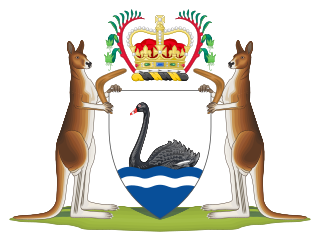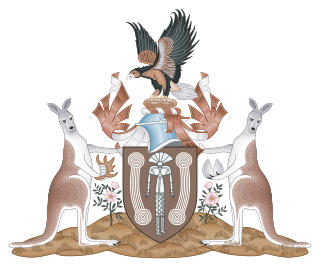Related Research Articles
At common law, damages are a remedy in the form of a monetary award to be paid to a claimant as compensation for loss or injury. To warrant the award, the claimant must show that a breach of duty has caused foreseeable loss. To be recognised at law, the loss must involve damage to property, or mental or physical injury; pure economic loss is rarely recognised for the award of damages.

The Stolen Generations were the children of Australian Aboriginal and Torres Strait Islander descent who were removed from their families by the Australian federal and state government agencies and church missions, under acts of their respective parliaments. The removals of those referred to as "half-caste" children were conducted in the period between approximately 1905 and 1967, although in some places mixed-race children were still being taken into the 1970s.
A tort, in common law jurisdiction, is a civil wrong that causes a claimant to suffer loss or harm, resulting in legal liability for the person who commits the tortious act. It can include intentional infliction of emotional distress, negligence, financial losses, injuries, invasion of privacy, and many other things. The word 'tort' stems from Old French via the Norman Conquest and Latin via the Roman Empire.
In law, standing or locus standi is a condition that a party seeking a legal remedy must show they have, by demonstrating to the court, sufficient connection to and harm from the law or action challenged to support that party's participation in the case. A party has standing in the following situations:
The Alien Tort Statute, also called the Alien Tort Claims Act (ATCA), is a section in the United States Code that gives federal courts jurisdiction over lawsuits filed by foreign nationals for torts committed in violation of international law. It was first introduced by the Judiciary Act of 1789 and is one of the oldest federal laws still in effect in the U.S.

The Foreign Sovereign Immunities Act (FSIA) of 1976 is a United States law, codified at Title 28, §§ 1330, 1332, 1391(f), 1441(d), and 1602–1611 of the United States Code, that establishes the limitations as to whether a foreign sovereign nation may be sued in U.S. courts—federal or state. It also establishes specific procedures for service of process, attachment of property and execution of judgment in proceedings against a foreign state. The FSIA provides the exclusive basis and means to bring a lawsuit against a foreign sovereign in the United States. It was signed into law by United States President Gerald Ford on October 21, 1976.
In Australia, Torts are common law actions for civil wrongs. Unless barred by statute, individuals are entitled to sue other people, or the state; for the purpose of obtaining a legal remedy for the wrong committed.
In tort law, a duty of care is a legal obligation which is imposed on an individual, requiring adherence to a standard of reasonable care while performing any acts that could foreseeably harm others. It is the first element that must be established to proceed with an action in negligence. The claimant must be able to show a duty of care imposed by law which the defendant has breached. In turn, breaching a duty may subject an individual to liability. The duty of care may be imposed by operation of law between individuals who have no current direct relationship but eventually become related in some manner, as defined by common law.

The Supreme Court of Western Australia is the highest state court in the Australian State of Western Australia. It has unlimited jurisdiction within the state in civil matters, and hears the most serious criminal matters.

Delgamuukw v British Columbia, [1997] 3 SCR 1010, also known as Delgamuukw v The Queen, Delgamuukw-Gisday’wa, or simply Delgamuukw, is a ruling by the Supreme Court of Canada that contains its first comprehensive account of Aboriginal title in Canada. The Gitxsan and Wet’suwet’en peoples claimed Aboriginal title and jurisdiction over 58,000 square kilometers in northwest British Columbia. The plaintiffs lost the case at trial, but the Supreme Court of Canada allowed the appeal in part and ordered a new trial because of deficiencies relating to the pleadings and treatment of evidence. In this decision, the Court went on to describe the "nature and scope" of the protection given to Aboriginal title under section 35 of the Constitution Act, 1982, defined how a claimant can prove Aboriginal title, and clarified how the justification test from R v Sparrow applies when Aboriginal title is infringed. The decision is also important for its treatment of oral testimony as evidence of historic occupation.

Milirrpum v Nabalco Pty Ltd, also known as the Gove land rights case because its subject was land known as the Gove Peninsula in the Northern Territory, was the first litigation on native title in Australia, and the first significant legal case for Aboriginal land rights in Australia, decided on 27 April 1971.

The Distomo massacre was a Nazi war crime perpetrated by members of the Waffen-SS in the village of Distomo, Greece, in 1944, during the German occupation of Greece during World War II.

The Supreme Court of the United States handed down sixteen per curiam opinions during its 2005 term, which lasted from October 3, 2005 until October 1, 2006.

In Kruger v Commonwealth, also known as the Stolen Generation Case, the High Court of Australia rejected a challenge to the validity of legislation applying in the Northern Territory between 1918 and 1957 which authorised the removal of Aboriginal children from their families. The majority of the bench found that the Aboriginals Ordinance 1918 was beneficial in intent and had neither the purpose of genocide nor that of restricting the practice of religion. The High Court unanimously held there was no separate action for a breach of any constitutional right.
Paternity fraud, also known as misattributed paternity or paternal discrepancy, occurs when a man is incorrectly identified as the biological father of a child. The underlying assumption of "paternity fraud" is that the mother deliberately misidentified the biological father, while "misattributed paternity" may be accidental. Paternity fraud is related to the historical understanding of adultery.
Feres v. United States, 340 U.S. 135 (1950), combined three pending federal cases for a hearing in certiorari in which the Supreme Court of the United States held that the United States is not liable under the Federal Tort Claims Act for injuries to members of the armed forces sustained while on active duty and not on furlough and resulting from the negligence of others in the armed forces. The opinion is an extension of the English common-law concept of sovereign immunity.
George Newhouse is an Australian human rights lawyer and a former local councillor. He is the principal solicitor of the National Justice Project, a human rights and social justice legal service, and currently an Adjunct Professor of Law at Macquarie University.
American Electric Power Company v. Connecticut, 564 U.S. 410 (2011), was a United States Supreme Court case in which the Court, in an 8–0 decision, held that corporations cannot be sued for greenhouse gas emissions (GHGs) under federal common law, primarily because the Clean Air Act (CAA) delegates the management of carbon dioxide and other GHG emissions to the Environmental Protection Agency (EPA). Brought to court in July 2004 in the Southern District of New York, this was the first global warming case based on a public nuisance claim.

Geiger v. Kitzhaber is a decision by the U.S. District Court for the District of Oregon that requires Oregon to allow same-sex couples to marry and to recognize same-sex marriages established in other jurisdictions. The decision arose from two consolidated cases that alleged that Oregon's constitutional ban on same-sex marriage, Article 15, § 5, and all related marriage statutes, violate the Due Process Clause and the Equal Protection Clause of the 14th Amendment to the United States Constitution. Among the several defendants, Attorney General Ellen Rosenblum filed appearances in the case to defend Oregon's position, but declined to defend the constitutionality of the bans and ordered state agencies to recognize the validity of same-sex marriages established elsewhere.
Tanzin v. Tanvir, 592 U.S. ___ (2020), was a United States Supreme Court case involving legal remedies that could be sought by litigants against federal officials for violations of the Religious Freedom Restoration Act. In a unanimous decision issued December 10, 2020, the court ruled that the Act allowed for litigants to seek not only injunctive relief but also monetary damages.
References
- ↑ "The Hon. Justice Janine Pritchard" . Retrieved 15 December 2013.
- ↑ "WA Supreme Court in an unbelievable decision dismisses Stolen Generations compensation claim". Sovereign Union - First Nations Asserting Sovereignty. The Stringer. 29 December 2013. Retrieved 9 June 2019
- 1 2 "WA Supreme Court dismisses Stolen Generation compensation claim launched by Collard family". ABC News. 10 June 2015. Retrieved 9 June 2019